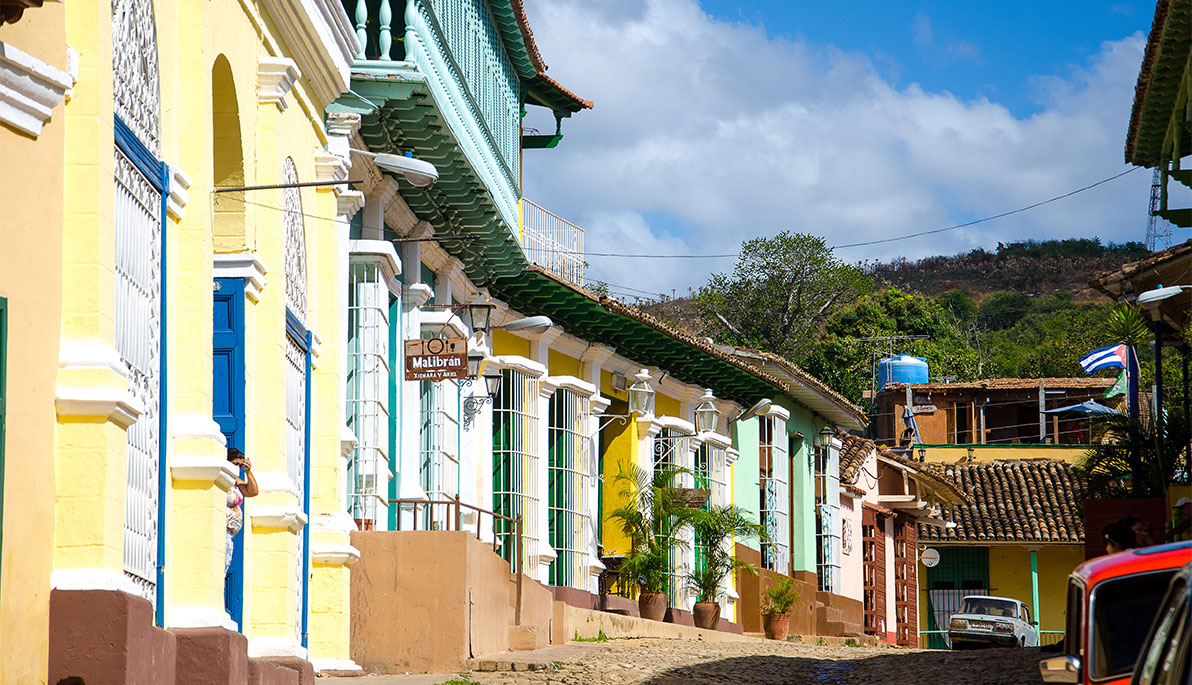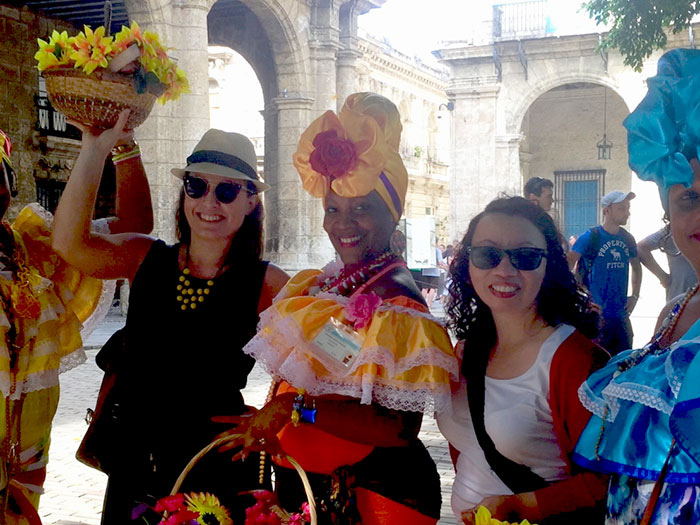
Destination: Cuba
February 17, 2017
Christa Lopez and Vasiliki Sgourdou (both graduate students majoring in communication arts) knew they shared the same desire for traveling around the world; they wanted to listen to people’s stories and relate those stories through photos and words. Applying for an Edward Guiliano Global Fellowship was the perfect opportunity for the budding journalists to test their talents.
When it came time to declare where they wanted to visit, Cuba was the only destination they had in mind. Because of the recent thaw in U.S.-Cuba relations, Lopez and Sgourdou felt the influx of Americans would soon transform the island’s original identity and that this was the perfect time to visit.
Their goal was simple: To grasp the feelings of the Cuban people in photos and words, to get their side of the story, and to let them show what Cuba is really all about.
The students spoke to The Box about the people they met, their impressions of the country, and how NYIT prepared them for this adventure.
The Cuban Experience
Christa Lopez (CL): When I got back from Cuba, honestly, it took about a week to process what I observed, felt, heard, and understood about the island. I approached Cuba mostly with the desire for Cuba to tell me about Cuba, for its people to tell me what it means to be Cuban. Through a chance encounter on a New York City bus months before the trip, Vasiliki and I were able to find a way to get a glimpse of Cuban life through the eyes of a local.
I met a woman on the bus who told me her sister lived in Havana and she gave me her email address. Vasiliki and I spoke to the woman for months before we went on our trip. When we arrived in Cuba we connected with her. She was amazing! She showed us places we would not have known about; she opened her heart and shared some painful memories and concerns for Cuba’s future. Hearing her story touched me deeply.
I was also very interested in the experience of stepping “back in time.” For the last 50 years, very little has changed in Cuba. Whatever progress the rest of the world has made, Cuba is only now becoming familiar with.
Vasiliki Sgourdou (VS): For me this experience can be summed up in two words: outstanding and heartwarming. Although we had been prepared for anything that could go wrong (for example we could get in trouble for even talking to people and asking questions), nothing happened. (Journalists need a special permit from the government, but we were there as students so we had to be very careful.) Even still, we were out all day looking for stories. We let ourselves sense the Cuban vibes; we stayed with locals and talked with them, and they opened their homes to us. We did a few touristy things, but we spent most of the time in their neighborhoods—the places where they eat and have fun.

Vasiliki Sgourdou, left, and Christa Lopez.
How NYIT Prepared Them to Tell Their Story
CL: Being a freelance photographer and photo editor for the Manhattan Globe, I know the importance of capturing that special moment in a still image. Part of my role at the paper is creating photo essays for each issue that tell a story visually. So, it was my deepest desire to give a voice to the people of Cuba, and especially to allow the parts of Cuba most tourists do not see, be seen.
VS: As soon as I found a story, I had the layout ready in my mind, I was thinking of ways to express the feelings without losing the message. This is something I have been working on for the newspaper class. Facts are facts, but the human factor behind the story is usually the one that makes the story meaningful.
Their Biggest Challenge
CS: My biggest challenge is to find the way to have the voices of the people we met be heard in the outside world—particularly by those who do not know much about them. I would call it justice, to speak up for these people, who haven't been able to do so for themselves. Since I have the means to do so, I will do my best to succeed.
VS: Definitely the language. I don’t speak Spanish and the people we met barely speak English. Although Christa speaks Spanish, I really felt the communication gap. “Sign language” and a couple of basic phrases always help, but I was afraid I would lose my stories in the translation.
We also had to be careful to whom we were talking. Cubans, until recently, were not allowed by the government to talk to tourists. The two of us walked around alone and spoke to random people on the street or people we met in places we visited. People were open to talking to us, and sometimes they would start a conversation, but would divert a question if one of us started digging too deep. People were scared to talk out loud for fear of being imprisoned.
The Most Important Lesson
CS: I do not want to forget the people we met or what they shared with me. Their voices have been silent outside of their country. I don’t think many people outside of Cuba know what it is like to live there. They cannot go out and protest, speak negatively about their leaders, and so forth. Coming back home and seeing what is happening in our political landscape makes me grateful to live in a democracy. It is a gift to be able to express and protest without fear of retaliation.
VS: I learned that if you are a journalist, it is part of your job to take the time to try and look deep inside the person you are writing about. While you can do research online or by opening a couple of books, people always have a great story to share, and they might even change your story’s point of view. Locals know the story better than anybody else.
This interview has been edited and condensed.
More Features

An Alumnus’ Commitment to the Environment
As an energy management graduate from New York Tech’s Vancouver campus, Jasdeep Gulati (M.S. ’22) is highly invested in educating people about environmental and climate sustainability.

Vancouver Faculty Win University-Sponsored Research Awards in New Program
The new Global Impact Research Grant (GIRG) program has been developed to keep Vancouver-based faculty connected to faculty and research projects being conducted on the university’s New York campuses.

Studying Climate Change One Degree at a Time
Junhua Qu (M.S. ’24) began her collegiate journey in Beijing. But, her interest in climate change took her to New York Tech’s Vancouver campus to study energy management.